
[ad_1]
Animal Equality is releasing further evidence of animal cruelty and suffering in Spain’s pig meat industry. During an investigation on several pig farms across Spain, investigators documented extreme confinement for pregnant and mother pigs, as well as the mutilation of their piglets without anesthesia.
This comes just a few short weeks after Animal Equality released footage inside five pig farms in Spain, where investigators documented cruelty during the pre-slaughter fattening stage.
Among the additional findings from the most recent release are:
Gestation crates: These crates confine pregnant pigs in spaces so small that they can’t turn around or take more than a step forward. In Spain, female pigs are kept here for their entire pregnancies, and they are brought back to these crates shortly after giving birth. Due to repeated and forced insemination, these pigs spend about half their lives in extreme confinement.
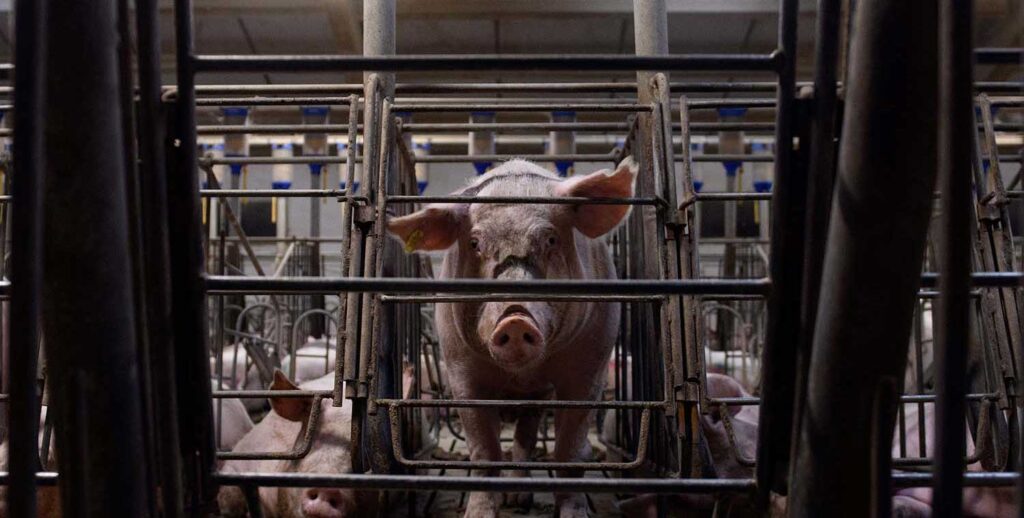
Farrowing crates: One of the only times mother pigs will walk is from a gestation crate to a farrowing crate. Pigs are brought to these cages shortly before giving birth, and they remain here for five weeks until her piglets are weaned. Their piglets nurse from them while they are held between tight, metal bars, unable to turn around or lie comfortably.
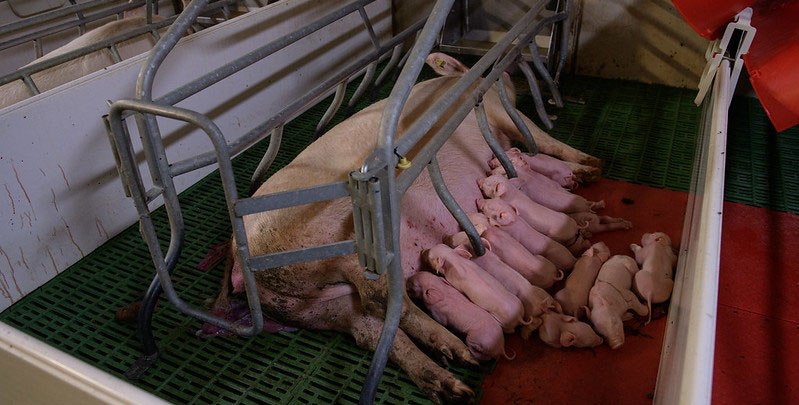
Many mothers watch as their piglets die of disease and injury on the factory farm floors, just out of their reach. Meanwhile, mother pigs suffer from chronic stress, frustration, and health problems like lameness, muscular issues, reduced cardiovascular capacity, and decreased bone strength.
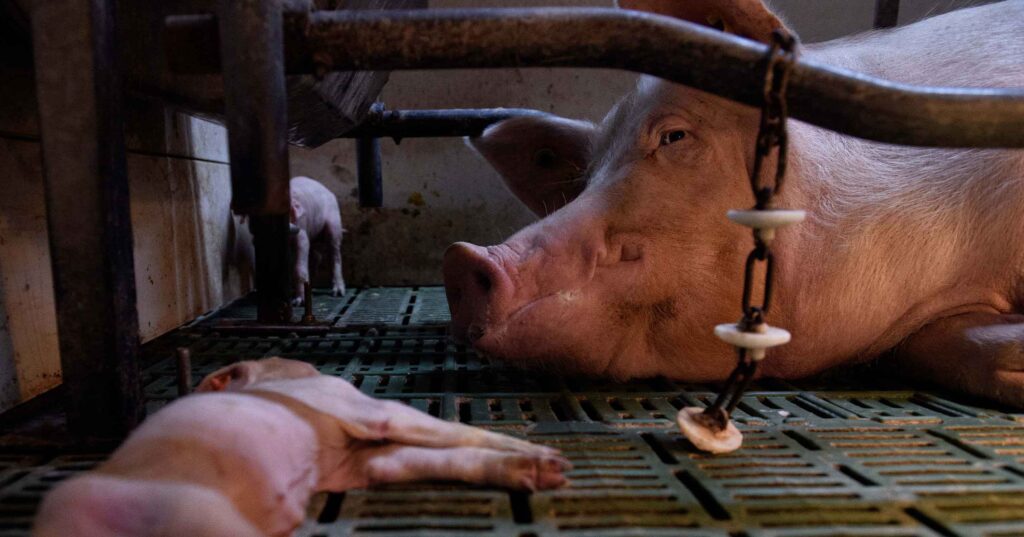
Painful mutilations: Piglets on factory farms are mutilated to prevent them from biting each other’s tails and ears in extreme distress. Mutilations include tail removal and castration, which are done without anesthesia. On these farms in Spain, investigators found tail remains and testicles thrown in containers, as well as tails scattered on the floor.
The European Union has prohibited tail docking, but 95% of pigs raised in the EU are still forced to undergo the painful procedure.
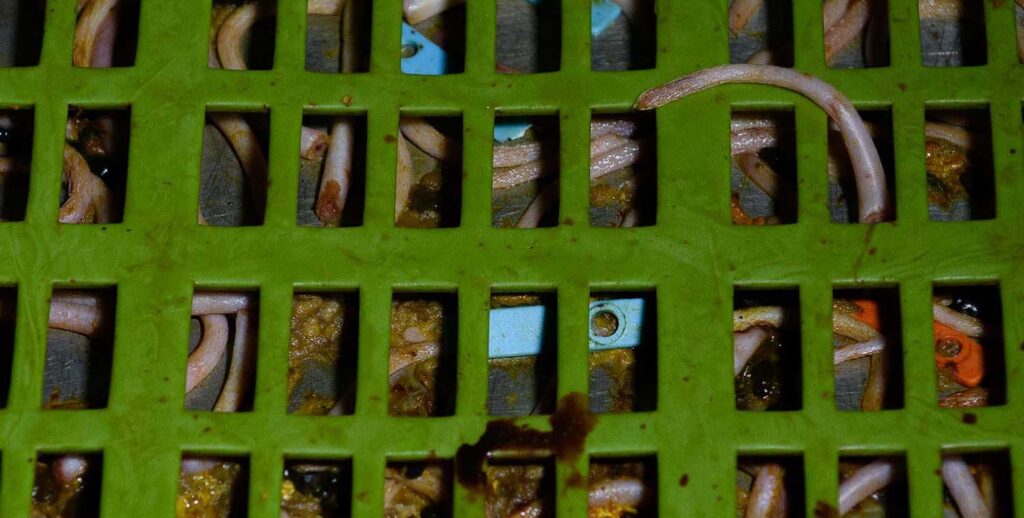
Painful injuries: Investigators found pigs with growths on their abdomens, skin abrasions, scratches of varying severity, prolapsed uteruses and anuses, swollen udders and genitals, injuries filled with pus and/or blood, lameness, and piglets lodged in mothers’ birth canals.
Rotting carcasses: Investigators found dead piglets in farrowing cages, left to rot among feces, placenta, and live piglets. They also documented a bloated carcass in the water tank near the cages, another pig lying in front of a cage, and wheelbarrows full of dead piglets and fetuses.
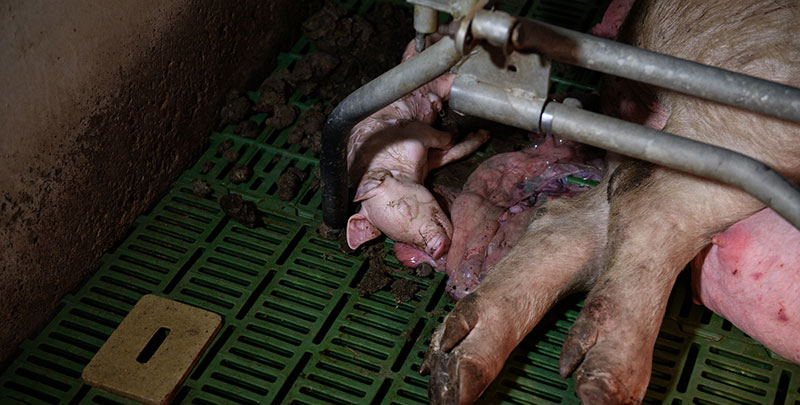
With significant public support in Europe for an end to extreme confinement, the European Commission pledged to end cages as part of its revision of animal welfare legislation. With this investigation being presented simultaneously in several European countries, Animal Equality is taking action.
Together, Animal Equality and its supporters are asking Members of the European Parliament to take a stand against cages, all while calling on European Commission President Ursula Von der Leyen to hold the governing body to its promises.
Bringing the Fight to U.S. Soil
As animal defenders in Spain grapple with the issue of extreme confinement, Animal Equality brought the fight to U.S. soil.
Here in the United States, pigs trapped in the meat industry are held in gestation crates and farrowing crates just like the ones found in this investigation. In addition to physical injuries related to a lack of movement, they suffer from mental anguish that leaves them biting the metal bars of their cages and foaming at the mouth.
During a campaign against diner chain Denny’s, Animal Equality called out leadership’s failed commitment to remove gestation crates from its supply chain. Not only has the chain ignored this ten-year-old commitment, but it removed the commitment from its website altogether.
Animal Equality’s nationwide protests against Denny’s have gained momentum, complemented by a digital billboard strategically placed in New York’s iconic Times Square. Meanwhile, Animal Protectors are taking action in their own homes. By sending emails to Denny’s leadership and commenting on their social media posts, you can join the public outcry against extreme confinement in Denny’s supply chain.
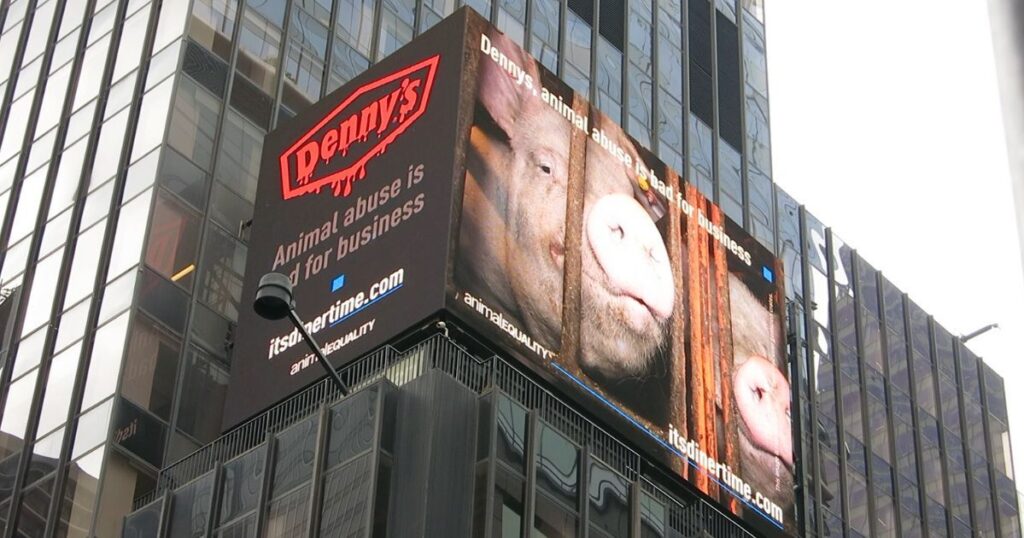
Fortunately, the fight against gestation crates has led to groundbreaking victories in recent years. This includes New Jersey’s law A.1970, which eliminates extreme confinement for pigs used for breeding and calves used for veal.
This is surpassed only by California’s Proposition 12–commonly known as America’s most robust animal welfare law–which faced legal challenges by the meat industry for years. This landmark legislation was upheld by the Supreme Court earlier this year, establishing minimum space requirements for pregnant pigs, as well as calves used for veal and hens used for egg production.
You Can Put an End to Animal Cruelty
Pigs endure a life of extreme confinement, exploitation, pain, and death, simply to produce bacon, sausage, and other pork products. By opting for plant-based proteins to reduce or replace meat, you can choose the cruelty-free path today.
Not only will your decision to replace pork directly impact animals’ lives, but it will inspire others to do so. Fortunately, choosing plant-based alternatives is becoming easier by the day.
Love Veg is here with you on this journey, providing tips and resources every step of the way. Together, we can progress toward a kinder future for animals right here on U.S. soil.
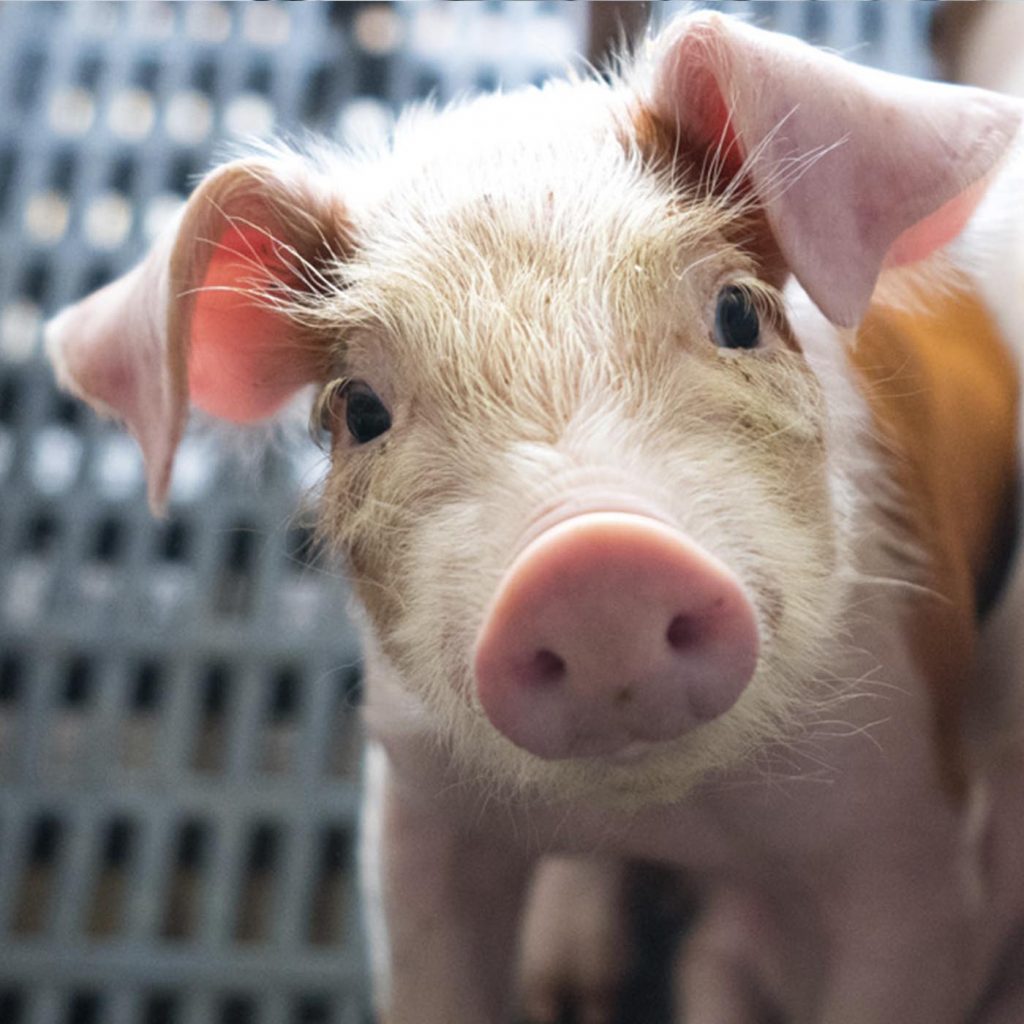
SAVE PIGS FROM ABUSE
Pigs are highly social animals who are often considered smarter than dogs.
You can protect these intelligent animals by simply choosing plant‑based alternatives.
[ad_2]
Source link

Leave a Reply